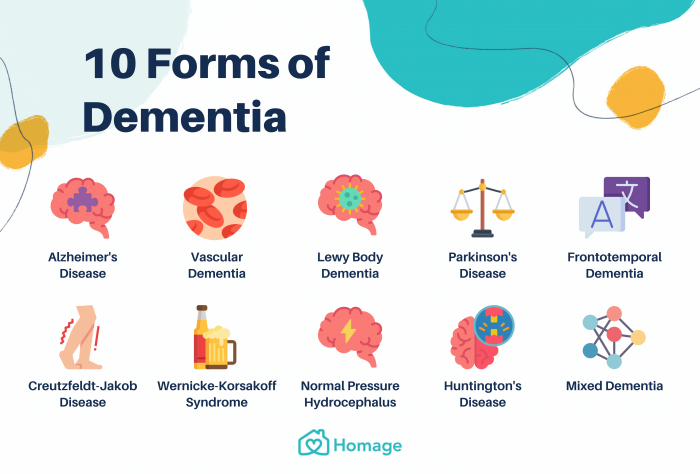

Dementia is the general term for a decline in cognitive function, it’s not a specific disease but a syndrome which has various causations and symptoms. Dementia affects memory thinking, language judgement and behaviour, usually it’s chronic or progressive with it being more common in older people. In the UK around 944,000 are estimated to be living with dementia in the UK, with someone developing the condition every three minutes.
The primary cause of dementia is damage to brain cells, there’s various ways this damage can occur with a some of the causations being alcohol abuse, mental and neurological disorders (such as Parkinson’s disease and depression), traumatic brain injury and various other things that result in the damage of brain cells. There are 200 subtypes of dementia with each type stopping brain cells (neurones) from functioning properly in specific areas, consequently affecting the ability to remember, think and speak. The most common forms of dementia include Alzheimer’s disease, Vascular dementia, Frontotemporal dementia and mixed dementia.
Alzheimer’s disease is the most common cause of dementia in the UK accounting for 60% of diagnoses in the UK – and is most common in those over the age of 65 affecting an estimated 1 in 14, however around 1 in 13 develop Alzheimer’s disease under the age of 65. Alzheimer’s disease is thought to be caused by the abnormal build-up of 2 proteins called amyloid and tau, with the deposits of tau forming tangles within brain cells and deposits of amyloid building up around brain cells. Those with Alzheimer’s disease have a lower level of acetylcholine (neurotransmitter), so to counteract this those with Alzheimer’s disease can take medicines like donepezil to increase levels of acetylcholine, improve brain function and decrease the symptoms. The symptoms that people develop are dependant and what areas of the brain have been damaged, the hippocampus is often affected early on in Alzheimer’s disease. The hippocampus is the area responsible for laying down new memories, so damage to the neurones results in memory loss – one of the earliest symptoms in Alzheimer’s.
Another type of dementia is vascular dementia which is a by-product of reduced blood flow to the brain which damages and over time kills brain cells. Reduced blood flow could happen due to narrowing or blockage of the small blood vessels in the brain, a singular stroke and mini strokes which cause tiny but widespread damage to the brain. Vascular dementia is the second most common type of dementia with 150,000 being affected in the UK, Lewy body dementia and frontotemporal dementia follow close behind.
It’s possible to have more than one type of dementia with the most common combination being Alzheimer’s disease and vascular dementia. The main possible factors of Alzheimer’s and vascular dementia are older age, high blood pressure and blood vessel damage in the brain. Those with mixed dementia experience a mixture of the symptoms associated with the types of dementia they have. Those with mixed dementia may be described a type of medication called cholinesterase inhibitors which prevent the breakdown of neurotransmitter acetylcholine or butyrylcholine by cholinesterase.
Most types of dementia can unfortunately not be cured. Treatments for dementia aim at reducing the symptoms and progression of the conditions, but the damage that has already been done cannot be reversed. Some medications such as NMDA aim to limit the symptoms of dementia, with NMDA receptor antagonist improving learning and memory, whilst other medications provide support to those struggling with dementia, for example antipsychotics which treat symptoms of anxiety, and depression and agitations.